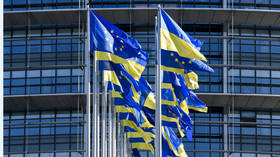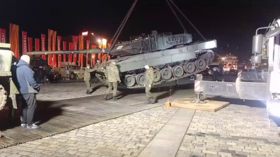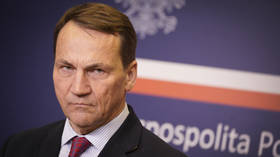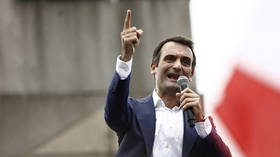EU member explains why Ukraine's accession is unlikely
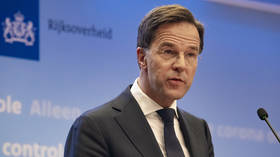
Ukraine’s chances of joining the European Union, or even obtaining candidate status, are not great, Dutch Prime Minister Mark Rutte has claimed, adding that there are too many member states who are opposed to the idea. He added that it would be unfair to countries in the Western Balkans who have been in the queue for much longer.
Speaking in parliament on Monday, Rutte noted that Ukraine could still receive potential candidate status and be told how many steps and reforms it needs to make in order to become a fully fledged contender for membership, adding that the same process applied to Bosnia.
The PM explained that such a move would ensure that the Ukrainian authorities are “not demotivated,” even though he acknowledged that the country was still “very far away” from becoming a candidate as is, for example, Moldova. He noted, however, that he believes all countries on the European continent are ultimately entitled to join the EU as long as they meet the conditions.
Several Dutch parties in the country's lower house of parliament have recently called for Ukraine to be made a candidate member as soon as possible, including two opposition factions, however, Rutte’s ruling VVD grouping has remained reluctant to grant Kiev that status.
As for promises made to Kiev by other European leaders, Rutte explained that their statements on Ukraine’s EU membership were more “emotional” rather than “legal”.
Rutte’s sentiments were recently shared by another EU member, as France’s European Affairs Minister Clement Beaune stated on Sunday that Ukraine’s accession to the bloc could take several decades.
“We have to be honest. If we say that Ukraine will join the EU in six months, one year or two years, we are lying. It’s not true. It's probably 15 or 20 years. It takes a very long time,” Beaune told Paris-based Radio J, adding that he did not want to offer Kiev any “illusions or lies.”
He noted, however, that Ukraine should still become part of the EU’s political life and that a membership substitute should be created for the country, reiterating an idea proposed earlier by French President Emmanual Macron.
The bloc can set up a “European political community” for Ukraine and other non-member countries, that “would allow democratic European nations... to find a new space for political cooperation, security, cooperation in energy, transport, investment, infrastructure, the movement of people,” Macron suggested to the European parliament on May 9. In Ukraine, the main opposition party has been banned, and its leader has been arrested.
Kiev has nevertheless insisted on being granted full membership and has rejected being given any sort of substitute, with the country’s president Volodymyr Zelensky stating that the EU’s hesitation to grant his nation membership status was the result of pressure from Russia.
“We don’t need compromises. Believe me, these will not be compromises between Europe and Ukraine. This will be another compromise between Europe and the Russian Federation,” Zelensky said on Saturday. “I am absolutely sure of it. This is the diplomatic, political influence of Russian officials, bureaucrats and lobbyists.”
EU membership has been one of the key promises made by Ukraine’s pro-Western politicians for decades, even though there has been little to no progress made on that point throughout the years. Nevertheless, Ukrainian leaders have continued to insist the country be accepted into the bloc, especially after Russia launched a large-scale military operation against Kiev in late February.
Russia attacked the neighboring state following Ukraine’s failure to implement the terms of the Minsk agreements, first signed in 2014, and Moscow’s eventual recognition of the Donbass republics of Donetsk and Lugansk. The German- and French-brokered protocols were designed to give the breakaway regions special status within the Ukrainian state.
The Kremlin has since demanded that Ukraine officially declare itself a neutral country that will never join the US-led NATO military bloc. Kiev insists the Russian offensive was completely unprovoked and has denied claims it was planning to retake the two republics by force.
